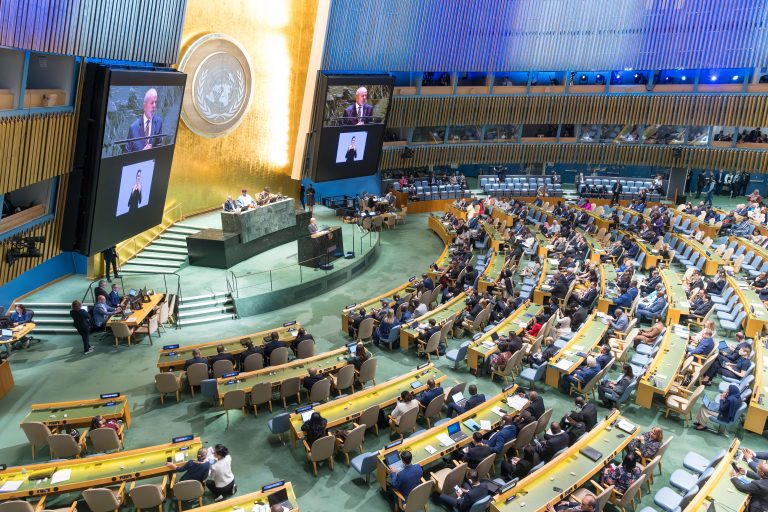São Paulo – The Pact for the Future, unanimously approved at the UN General Assembly on Sep. 22, fosters major changes in multilateral cooperation, according to a report published by UN News. Countries had been negotiating the agreement for months. It was facilitated by Germany and Namibia and resulted in 56 pages of commitments.
The document calls for a transition to end the use of fossil fuels in energy systems in a “just, orderly, and equitable manner, accelerating action in this critical decade.” The agreement also reaffirms the determination to set a new collective goal at the COP29 climate summit, starting from a minimum of USD 100 billion per year, to finance the energy transition, taking into account the needs of developing countries.
The approved pact establishes guiding principles for the reform of the UN Security Council, advocating for the “expansion of the body to make it more representative” and to reflect the realities of the contemporary world. Countries also commit to intensifying efforts to reach an agreement on the future of the veto power, “including discussions on limiting its scope and use.”
In the pact, countries commit to cooperating to promote a “responsible, accountable, and human-centric approach to the lifecycle of digital and emerging technologies,” including artificial intelligence. The goal is to develop, disseminate, and maintain, through cooperation among various stakeholders, “secure open-source software, open data, open AI models and open standards that benefit society as a whole.”
The approved text also addresses disarmament and proposes to advance “with urgency discussions on lethal autonomous weapon systems,” recognizing that international humanitarian law must continue to be fully applied in this context. It also reaffirms the commitment of countries to “the total elimination of nuclear weapons,” with the immediate goal of eliminating the threat of nuclear war.
The agreement also proposes to strengthen the multilateral response to support countries with high burdens and unsustainable debts. According to the UN, the aim is to enable these countries to overcome outstanding debts and prioritize government expenditures in implementing the Sustainable Development Goals.
Read more:
G20 supports reform of climate funds
Translated by Guilherme Miranda




